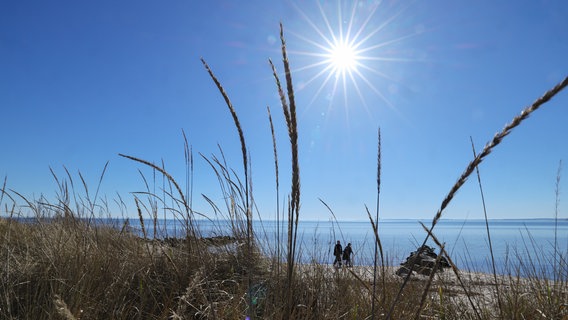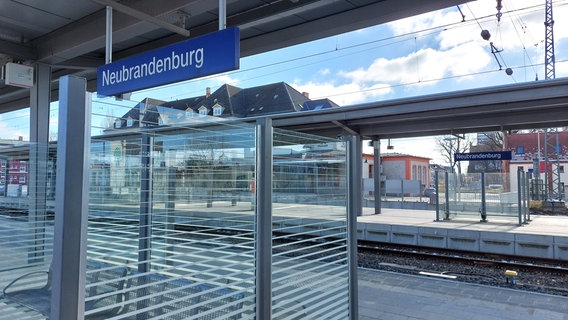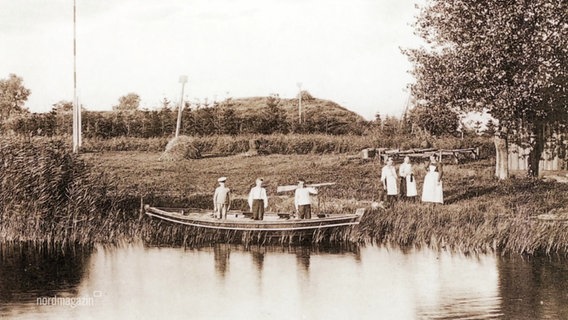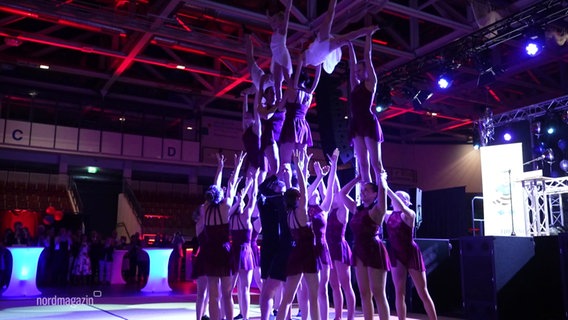Mecklenburg-Vorpommern-Guide for Refugees
Mecklenburg-Vorpommern-Kompass für Flüchtlinge - deutsche Version
Where do I submit my application for asylum?
The initial reception center for refugees is located in the town of Nostorf-Horst, in the district of Ludwigslust-Parchim. There is also a branch in Stern Buchholz, south of Schwerin. You can apply for asylum in both institutions. After you have filed your application, you will be either accommodated somewhere in Mecklenburg-Vorpommernor or relocated to another federal state. The Federal Office for Migration and Refugees (German abbreviation: BAMF) is in charge of granting or denying political asylum.
Where do I find advice and assistance in dealing with local authorities?
Reception centers work closely with local volunteers and non-governmental organizations that help refugees to settle in. The refugee council of Mecklenburg-Vorpommern provides addresses and contact information that might help you.
Where can I take German classes?
Approved refugees have the right to participate in an integration course (in German: Integrationskurs). The course schedule includes 600 hours of German lessons and 60 hours of German politics and history classes. Refugees whose applications have not been approved yet but are likely to get accepted can apply at the Foreigners’ Registration Office (in German: Ausländerbehörde) to take part as well.
Where do I get clothes?
Many nonprofit organizations in Mecklenburg-Vorpommern offer donated clothes to refugees. (In German: Kleiderkammer). Here you’ll find clothes for either very little money or even for free. Ask at a reception center or the German Red Cross (Deutsches Rotes Kreuz, DRK) to find the Kleiderkammer nearest you.
How do I find work?
There are several web pages where job offers are listed online. Also, many companies have a section on their official homepage where they list the names of persons to contact and specific job offers.
The jobcenter from the Federal Employment Agency is officially in charge of tracking job vacancies. To get assistance on finding a job, ask for an appointment at the jobcenter that is responsible for you. This is usually the one closest to where you live.
The German Chamber of Commerce (in German: Industrie und Handelskammer, IHK) is the place to get legal recognition of your job training qualification. You will find helpful information on the official web forum "Recognition in Germany" or by calling their head office in Berlin: (030) 18 15 11 11.
Recognition of higher education - like school qualification, university diplomas, and other certificates - is granted by universities and colleges directly. Contact their registrar’s office or international student board.
What to do when I’m feeling ill?
As an asylum seeker, you have the right to medical treatment if you are pregnant, in pain, or suffering from an acute illness. But to see a doctor, you have to apply for a health insurance voucher first at the welfare department (Sozialamt). Unfortunately, it sometimes can be a problem getting them. Tell the person in charge of your reception center or talk to someone from a counselling centre if you’re having trouble getting a health care voucher.
How do I find housing?
Apartments and single rooms are mostly listed online. Housing associations offer apartments for those who don’t have a lot of money (in German: Baugenossenschaft). If you would like to move to a different city but are getting financial support from a job center, you have to ask for permission to move first.
How do I reunite with my family?
Refugees who hold a three year long visa under the Geneva Convention can apply for family reunification with their husband or wife and children. In order to do so, they have to apply no later than three months after their recognition at the Foreign Office. They need to fill out the ‘timely notification’ as well as the visa application form. Afterwards they have to book an appointment for every relative at their respective embassy, mostly in Lebanon or Turkey. You can do this here. You can start the process here.
Those who are filed as subsidiary protected will have to wait until 16th March 2018 to be allowed to apply for family reunification.
How do I appeal a rejection or subsidiary protection?
More and more Syrians get granted subsidiary protection in Germany: hence their families cannot join them here. Also almost every second asylum application by Afghans gets rejected. Syrians can object to the subsidiary protection within two weeks and mostly have good chances of getting granted a three year long visa afterwards. To that end, they need to hire a lawyer who will cost around 500 Euro. Numerous judges in Schleswig-Holstein have already ruled in favour of Syrians – saying subsidiary protection doesn’t suffice. In case of a rejection you need to appeal within one week.
Schlagwörter zu diesem Artikel
Migration









